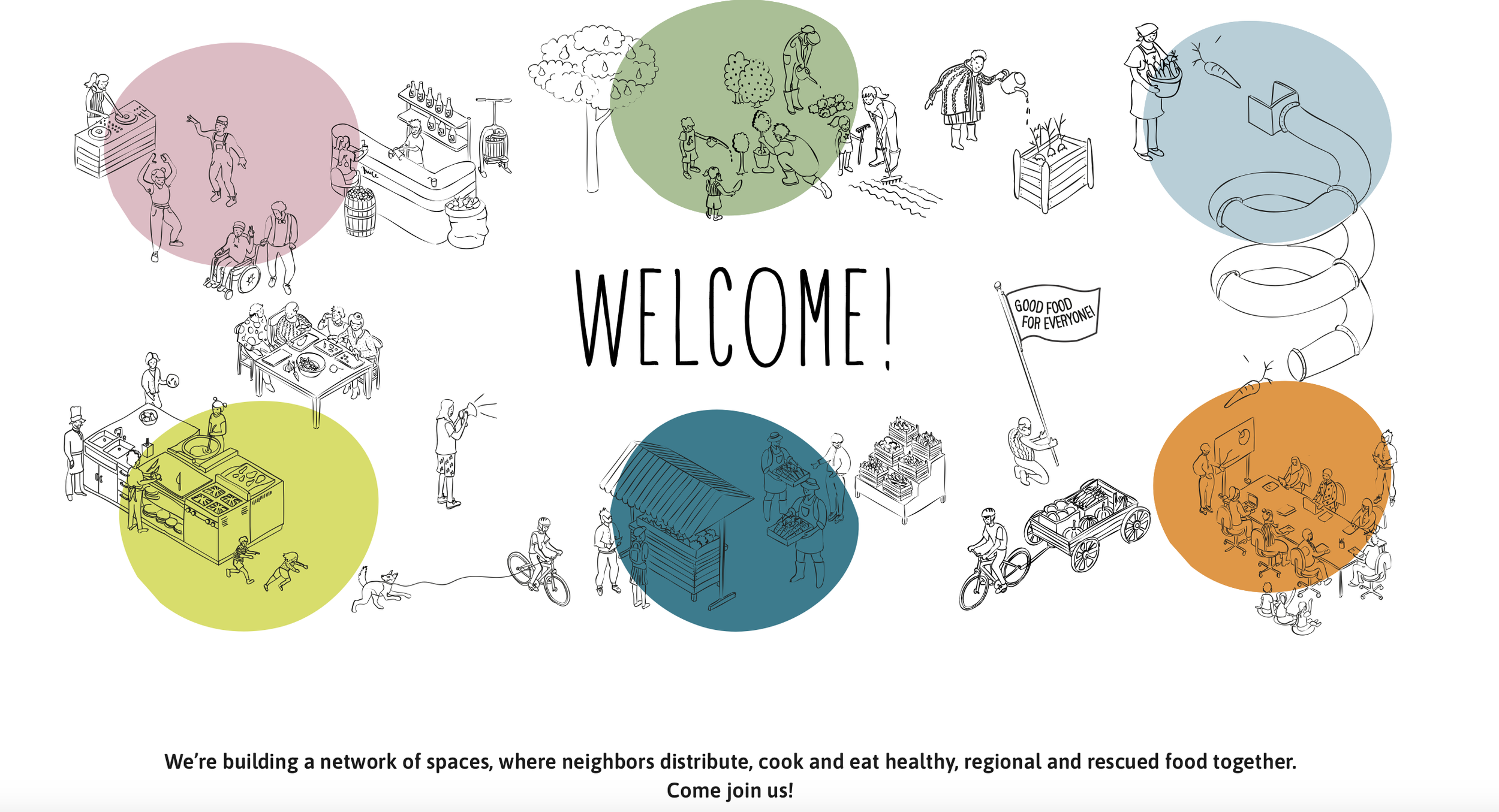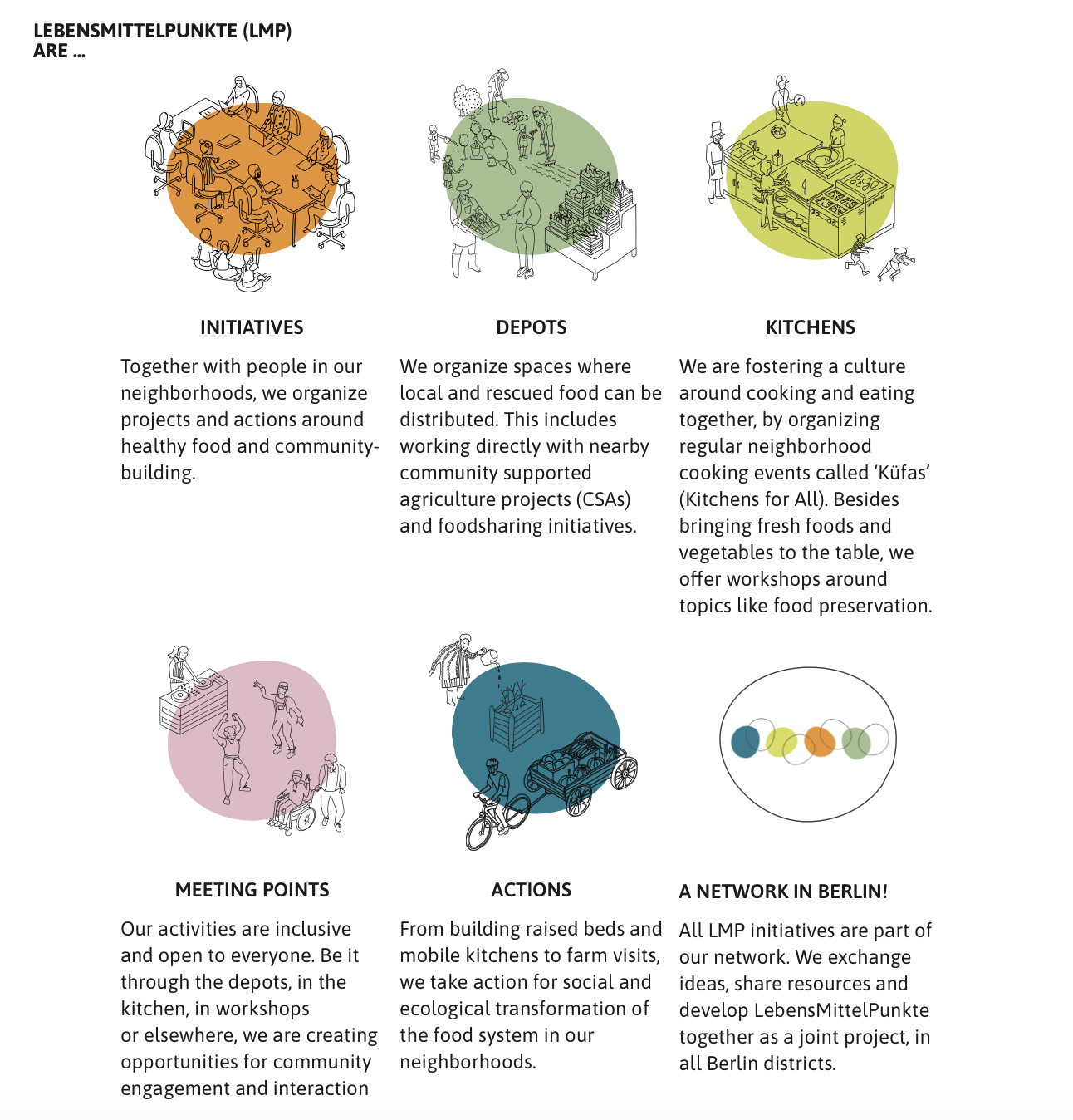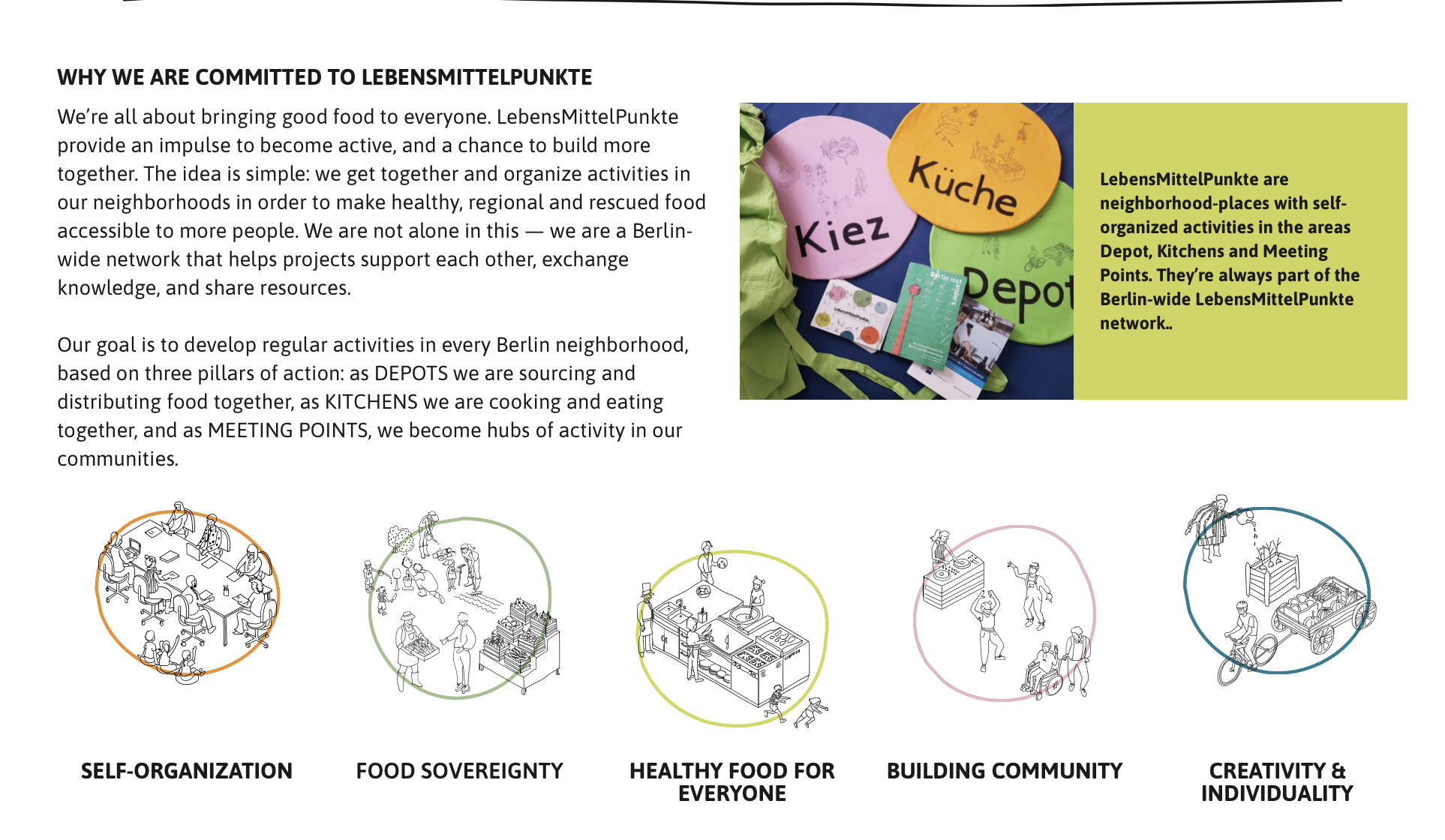The "Lebensmittepunkte" - or Berlin's Food Hubs - are a perfect and sustainable fit for the idea of the fifteen-minute city
From ErnahRungsRat, Berlin
We were alerted this week by our great friend, the regenerative designer John Thackara, to the phenomenon of “Food Hubs” in Berlin, and Germany more widely (in German, it’s called “LebensMittelPunkte” (LMPs). Berlin’s LMP is impressive. Some screen grabs from their English-language site below:
Thackera pointed originally to this academic paper. It attempts to mesh the concept of the 15-minute city, with a plan for effectively distributing accessible food hubs through Berlin. As the paper puts it:
We envision the scaling out of the Food Hubs to the whole city, not as a set of independent ‘food islands' but as components of a polycentric city with a balanced level of autonomy and interconnectedness. This model would facilitate a food system transformation by the creation of a more sustainable city-region food system.
However, the state of Berlin does not, as yet, have an integrated sustainability strategy. We call for a systemic approach in policy-making in order to implement a net of agroecology-based regional FHs covering the entire city, which should be reachable in walkable distances.
In order to achieve this, a multi-actor participative approach including practitioners, planners and policymakers should be adopted—not only at the city level but also between Berlin and the state of Brandenburg, where the majority of the food would be produced.
In this regard, future efforts may focus on the implications of the agroecology-based regional FHs at the agricultural landscape level in order to move towards an agroecology-based, territorialised agri-food system.
More here. And here, a German-language report on how this would work.




